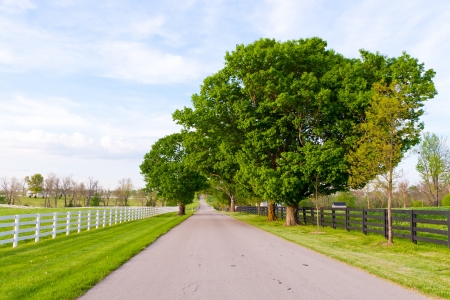Introduction: Embracing Nature for Wellbeing
The British landscape, with its rolling hills, tranquil meadows, and ancient woodlands, has long been cherished as a source of peace and vitality. In recent years, there has been a renewed appreciation for gentle walking across the UK’s diverse countryside—not merely as a pastime, but as a mindful practice supporting both physical and mental harmony. Drawing upon traditional wisdom that values balance between body and spirit, gentle walking invites us to slow down and reconnect with nature’s rhythms. Amidst Britain’s ever-changing skies and lush greenery, this simple act becomes a bridge between modern lifestyles and age-old holistic principles, nurturing wellbeing in ways both subtle and profound.
2. Connecting Mind and Body Through the Rhythm of Walking
Gentle walking through the rolling hills, ancient woodlands, and meandering paths of the British countryside is far more than a simple physical activity. It is an invitation to harmonise the mind and body, drawing from both Eastern philosophies—such as the concept of qi (vital energy) in Traditional Chinese Medicine—and Western mindfulness practices. The steady rhythm of each step becomes a grounding force, helping to align our internal energies with the tranquil pulse of nature. In this way, mindful movement transforms a walk into a holistic ritual that supports physical vitality and emotional well-being.
The Synergy of Mindful Movement
In both Eastern and Western traditions, mindful movement is celebrated for its capacity to foster presence and balance. When you consciously engage with your breath, posture, and environment during a walk across British landscapes—whether on the moors or along coastal paths—you allow yourself to experience a meditative state that eases mental tension and restores clarity. This practice enhances the harmonious flow of energy throughout the body, supporting not just muscular health but also emotional resilience and mental calm.
Comparing Eastern and Western Approaches
| Eastern Perspective | Western Perspective |
|---|---|
| Focuses on balancing qi (energy) through slow, intentional movement | Emphasises mindfulness, stress reduction, and connection to nature |
| Walking as a moving meditation—similar to Tai Chi or Qi Gong | Walking as “forest bathing” or mindful walking therapy |
Cultivating Holistic Health in Nature’s Embrace
The gentle embrace of Britain’s landscapes offers a nurturing backdrop for this mind-body synergy. As you walk amidst wildflower meadows or beneath ancient oaks, your senses awaken: birdsong soothes the spirit, fresh air invigorates the lungs, and dappled sunlight lifts the mood. This sensory integration further amplifies the healing benefits of walking. When approached mindfully—with awareness of each step and breath—gentle walking becomes a powerful tool for cultivating holistic health, weaving together body, mind, and environment into one harmonious whole.

3. The Landscape as a Healing Force
Across the rolling hills, ancient woodlands, wild moors, and rugged coastlines of Britain, nature offers a powerful yet gentle medicine for body and mind. The British landscape is not merely a backdrop for gentle walking; it is an active participant in the healing process, resonating with the time-honoured wisdom of both Western herbal tradition and Eastern philosophies such as Chinese medicine.
Woodlands: Breathing in Calm
Wandering through dappled forests—beech, oak, or pine—brings about a subtle shift in our internal state. The scent of earth and greenery soothes the nervous system, reminiscent of the Chinese concept of “Shen” (spirit) being nourished by harmonious surroundings. Gentle walking here allows us to attune to the rhythms of nature, helping to calm the mind and ease emotional tension.
Moors and Open Heaths: Restoring Vital Energy
The expansive moors, with their windswept heather and far-reaching vistas, invite deep breathing and introspection. In traditional thought, open spaces allow Qi (vital energy) to flow more freely within us. The sense of space encourages release—of worries and stagnation—bringing fresh perspective and inner balance much like ancient practices that advocate regular communion with wild places.
Coastal Paths: Rejuvenation by the Sea
Walking along Britain’s coastline—whether atop chalk cliffs or sandy shores—the bracing sea air invigorates body and spirit alike. Salt-laden breezes are believed to clear away internal heat and lift one’s mood. In both modern holistic thinking and classical teachings, proximity to moving water helps ‘wash away’ fatigue, supporting mental clarity and emotional renewal.
This unique British blend of woodland serenity, moorland openness, and coastal vitality serves as a natural tonic. Just as ancient traditions have long prescribed immersion in natural landscapes for rebalancing health, today’s gentle walker finds that these environments restore equilibrium between body, mind, and spirit—reminding us that true wellness is found where human life harmonises with the rhythms of nature.
4. Gentle Walking and Mental Calm
Amidst the tranquil beauty of the British landscape, gentle walking is more than just a physical activity—it becomes a mindful journey. Whether meandering through a centuries-old park in the heart of London or exploring the rolling green hills of the Cotswolds, each step invites a moment of calm, allowing stress and anxiety to dissipate with the breeze. British mindfulness, rooted in appreciation for nature and seasonal rhythms, harmonises beautifully with Eastern philosophies that emphasise balance between mind and body. When we walk gently, our senses attune to the subtle rustle of leaves, the scent of wildflowers, and the chorus of birdsong—all nurturing emotional wellbeing. This mindful connection can be likened to traditional Chinese medicines concept of “Shen” (spirit), where harmonious surroundings restore inner peace.
The Calming Effects of Walking in Nature
| Setting | British Mindfulness Approach | Eastern Balance Perspective |
|---|---|---|
| Local Parks | Pausing to notice squirrels, ancient trees, or a serene pond fosters gratitude and presence. | Connection with living Qi (energy) in nature helps dispel emotional stagnation. |
| Countryside Footpaths | Savouring expansive views and quiet lanes encourages reflection and reduces mental clutter. | The rhythmic pace mirrors meditative breathing, promoting harmony between heart and mind. |
Emotional Wellbeing Through Gentle Movement
Gentle walking offers an accessible way to manage daily pressures. Research suggests regular walks in natural environments lower cortisol levels—the bodys stress hormone—while increasing endorphins that uplift mood. From a holistic perspective, this practice is akin to “regulating Qi” in Chinese medicine: movement through green spaces unblocks emotional tension and supports resilience. By combining British traditions of outdoor mindfulness with time-honoured Eastern balance, one creates a pathway not only for physical health but also for lasting mental calm.
5. Boosting Resilience and Vitality
Gentle walking amidst the British countryside offers more than just scenic beauty; it acts as a natural tonic for both body and mind. In the rhythm of regular, unhurried walks, we find a powerful means to strengthen our body’s defences. According to holistic traditions and the wisdom of Chinese medicine, gentle movement encourages the smooth flow of Qi—the vital energy—throughout the body, enhancing immunity and fortifying our resilience against everyday stressors.
In the context of British culture, this practice resonates with age-old customs that celebrate seasonal transitions, such as May Day walks or autumn rambles. These communal outings are not only rooted in folklore but also reflect an intuitive understanding: moving in harmony with nature’s cycles helps to align our internal systems with the external environment. The soft tread on dew-laden grass or along woodland paths mirrors the gentle approach advocated in holistic medicine, where moderation and consistency are valued over extremes.
Moreover, gentle walking invigorates the spirit by providing moments of quiet reflection and connection to place. The act of walking—whether through rolling hills, coastal trails, or tranquil parks—encourages mindfulness and helps dispel stagnation, both physically and emotionally. This sense of renewal is echoed in British literature and tradition, where a simple stroll is often portrayed as a restorative ritual.
By embracing the practice of gentle walking as part of daily life, we nurture not only physical vitality but also emotional balance. Each step outdoors supports the body’s natural rhythms, echoing both the ancient principles of balance found in Chinese medicine and the cyclical celebrations embedded in Britain’s rural heritage. In this way, walking becomes a living bridge between past and present, East and West—a timeless path to resilience and wellbeing.
6. Practical Tips for a Mindful Walk in Britain
Incorporating gentle walking into daily life need not be complicated, especially when drawing inspiration from the rhythms of British culture and ancient contemplative practices. Begin by choosing routes that resonate with local heritage—whether it’s a stroll through a village green, along historic canals, or beneath the sprawling oaks of a traditional English park. Set aside dedicated moments during your week, perhaps after a classic cup of tea, to encourage routine and ritual. As you walk, engage your senses fully: notice the scent of wildflowers, the texture of moss on stone walls, or the distant chime of church bells. Embrace mindful breathing; let each inhalation and exhalation anchor you to the present, echoing time-honoured Eastern meditative techniques that harmonise body and mind. Invite friends or family to join you, turning your walks into opportunities for gentle conversation and shared reflection—a practice woven into British social tradition. For those drawn to solitude, consider bringing along a pocket journal to record your observations and insights, much like nature diarists of old. By weaving these mindful steps into everyday life, you not only nurture physical health but also foster emotional balance and a deeper connection to the storied British landscape.


